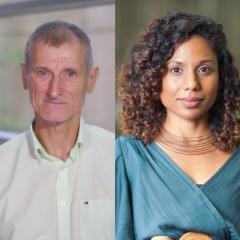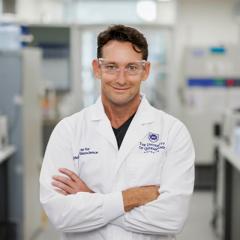A University of Queensland researcher is studying yeast with hopes of finding better ways of preventing viruses.
Dr Alan Munn, from UQ's Institute for Molecular Bioscience, said that currently there were no treatments for viruses in the way antibiotics could be used to treat bacterial infections.
“When we get a bacterial infection, such as strep throat, our doctor will prescribe us with an antibiotic and we quickly get better,” Dr Munn said.
“Antibiotics work because they effectively kill many different types of bacteria without harming the cells in our body. When we get a viral infection like influenza it's a different story.”
Dr Munn said viruses can enter our cells and hide, making it difficult to develop a treatment that would kill them without also killing the cells that harbour them.
“One way around this would be to perturb the ability of cells to harbour viruses, but we would need to do this without harming the cells themselves,” he said.
“Unfortunately, viruses use many types of cellular machinery that are essential for life, including those involved in making molecules such as DNA and proteins.”
A recent advance is the discovery of a new class of cellular machinery called ESCRT (pronounced "escort"), which is used by many different viruses to infect cells.
“Viruses now known to use ESCRT include those that cause AIDS, Ebola, glandular fever, herpes, respiratory infections and hepatitis,” Dr Munn said.
“The exciting thing about this discovery is that some cells can survive without key ESCRT components. In theory, this means that a drug targeting ESCRT could prevent viruses from entering cells without harming the cells.”
“The research in my laboratory at the IMB uses yeast in the aim of discovering ways of targeting ESCRT so that it cannot be used by viruses but can still perform its normal cellular roles.”
“We use yeast because it is easy to study and many molecular processes have been conserved between yeast and humans.”
Dr Munn said that any drug that could result from his and others' work would be many years away.
Media contacts:
Bronwyn Adams, IMB Communications – 07 3346 2134 or 0418 575 247
Using yeast in the fight against viral infection
2 Jul 2007



